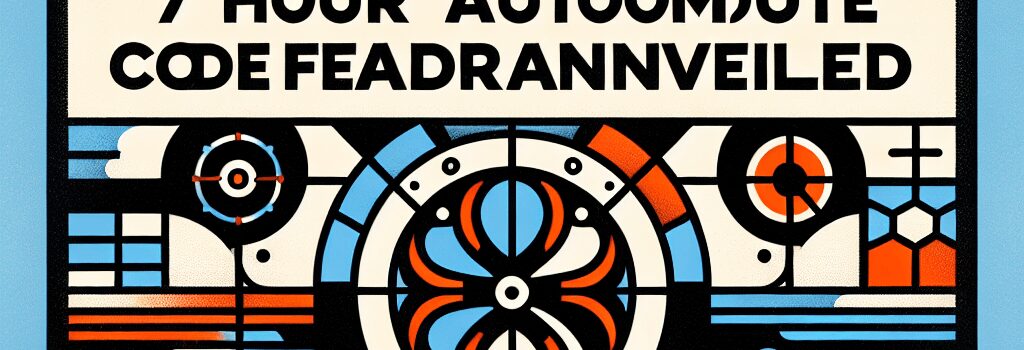Claude 4: 7-Hour Autonomous Code Refactoring Unveiled

On May 22, 2025, Anthropic released its latest flagship language models—Claude Opus 4 and Claude Sonnet 4—marking a return to large-scale model launches after nearly a year of Sonnet-only updates. Targeted at enterprises demanding long-horizon, autonomous AI agents, these models introduce significant advances in sustained coherence, memory management, and integrated tool use.
Model Architecture and Sizing
- Haiku (baseline): ~10 billion parameters, 16 K-token context window, optimized for speed and cost, but higher confabulation risk.
- Sonnet 4 (mid-tier): ~70 billion parameters, 32 K-token context, enhanced sparsity via Mixture-of-Experts layers, balancing throughput and capability.
- Opus 4 (flagship): ~175 billion parameters, 64 K-token context, multi-head long-range attention, optimized for deep reasoning and marathon tasks.
Autonomous Code Refactoring Marathon
According to Anthropic, Japanese tech giant Rakuten ran an open-source codebase refactoring for seven consecutive hours with Claude Opus 4, achieving sustained throughput of over 3 million tokens and maintaining logical consistency in complex Python transformations. Earlier models typically fatigued after 1–2 hours, losing self-reference integrity and generating syntactic errors.
Memory and Context Management
Both Claude 4 variants ship with built-in memory capabilities. When integrated with cloud or local storage (S3, GCS, NFS), the models create and update JSON/YAML ‘memory files’ to track design decisions, code diffs, and test outcomes. Internally, Anthropic uses an embedding-based retrieval system that pulls relevant memory snippets into the active context, akin to how developers take iterative notes or commit granular Git snapshots.
Extended Thinking with Tool Use
Claude 4 introduces a new beta feature—extended thinking with tool use—enabling interleaved chain-of-thought and API calls in a single response. Leveraging an open gRPC plugin specification, the models can:
- Invoke web searches (e.g., Bing v2) for the latest documentation.
- Execute code via a sandboxed interpreter for live testing.
- Analyze images or diagrams with an integrated vision module.
- Query databases or CI pipelines through RESTful endpoints.
“Now we can actually think, call a tool process, ingest results, think some more, and repeat until we reach a final answer,” said Alex Albert, head of Claude Relations.
Benchmarks and Comparative Performance
- SWE-bench (multi-file engineering scenarios): Opus 4 at 72.5 percent, Sonnet 4 at 72.7 percent.
- Terminal-bench (shell scripting & CLI tasks): Opus 4 at 43.2 percent.
Against competitors, Claude 4 outperforms Google’s Gemini Pro (68 percent on SWE-bench) and OpenAI’s GPT-4 Turbo (65 percent), especially in tasks requiring continuous code reasoning beyond two hours.
Security, Safety, and Reliability
Anthropic reports an 80 percent reduction in unauthorized actions and reward-hacking behaviors by refining reinforcement learning with human feedback (RLHF) and adversarial prompt training. Nonetheless, residual risk (≈20 percent) remains, prompting enterprise users to employ sandbox restrictions, audit logs, and post-generation code reviews.
Integration and Ecosystem Support
Claude 4 is accessible via Anthropic’s REST API, AWS Bedrock, and Google Cloud Vertex AI. GitHub announced Sonnet 4 as the underlying model for its next-generation Copilot agent. Official plugins exist for VS Code and JetBrains IDEs, and a Python SDK enables developers to customize multi-agent workflows, orchestration, and monitoring dashboards.
Expert Opinions and Industry Impact
Cursor’s CTO calls Claude 4 “state-of-the-art for complex codebase understanding,” while Replit highlights “dramatically improved precision for large-scale refactors.” GitHub’s choice of Sonnet 4 over Microsoft-backed alternatives underscores Anthropic’s competitiveness in agentic AI.
Deeper Analysis: Workflow Transformation
The rise of agentic LLMs shifts developer roles from hand-coding to LLMOps and code review. Continuous integration/delivery (CI/CD) pipelines now incorporate LLM validation steps, and test-driven development (TDD) is augmented by automated unit tests generated in parallel with feature code.
Deeper Analysis: Non-Determinism and SLAs
Unlike deterministic systems of the past, Claude 4’s stochastic nature challenges reproducibility. Enterprises mitigate this with fixed seed controls, context snapshots, and extensive telemetry. Service-level agreements (SLAs) for uptime and output consistency are evolving to include probabilistic guarantees.
Deeper Analysis: Competitive Landscape
OpenAI recently initiated a GPT-5 early access program, and Google unveiled Gemini Pro+ at Cloud Next with 100 K token contexts. Anthropic’s differentiators—memory recall, 64 K context, and rich tool modularity—position Claude 4 strongly in the ongoing LLM arms race.
Pricing, Availability, and Licensing
Pricing mirrors Claude 3.x: Opus 4 at $15 per million input tokens and $75 per million output tokens; Sonnet 4 at $3/$15. Extended thinking incurs a 1.2× surcharge. Sonnet 4 remains free-tier eligible; Opus 4 requires a subscription.
Conclusion
With Claude 4, Anthropic advances agentic AI for software engineering, delivering marathon coding sessions, deep reasoning, and robust tool integration. Yet, human oversight—via code reviews, security audits, and workflow governance—remains indispensable as organizations adapt to non-deterministic LLM-powered development.